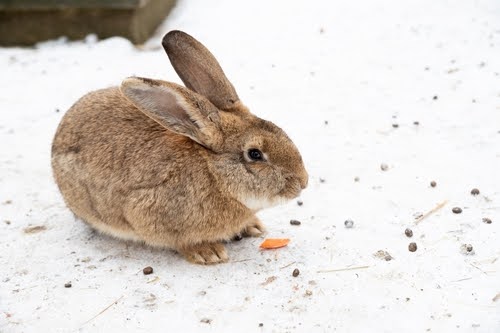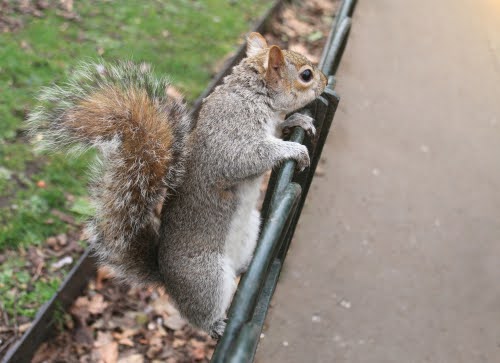While other animals hibernate or migrate, rabbits adapt to winter in their own way. That adaptation can sometimes mean trouble for your yard, landscaping, or garden beds. In this article, we’ll explore where rabbits go in the winter, how they survive the cold, and signs to look for if you think they’ve made your property a part of their winter routine.
Do Rabbits Hibernate?
No, there are no rabbit species that hibernate during the winter. However, that doesn’t mean that rabbits are unaffected by the cold. Winter is hard on rabbits because:
- Low Food Supply: Vegetation rabbits feed on, like grass, buds, and weeds, is far less plentiful in winter as it’s buried under snow. This makes them a lot less picky about what they eat and that could be a problem for you.
- Cold Temperatures: Rabbits’ fur isn’t thick enough to fully insulate them during particularly cold days. If it’s too cold, rabbits have to seek shelter from wind and cold, often around manmade structures.
- Predators: Lack of foliage cover in winter makes rabbits far more vulnerable to predation, as well. Rabbits have nowhere to hide during the winter.

How Do Rabbits Survive the Winter?
To survive winter, rabbits adjust their diets by feeding on twigs, bark, evergreen shrubs, and even pine needles when more favorable vegetation isn't available. This change in feeding habits often results in damage to ornamental plants, landscaping, and young trees near homes. In extreme conditions, rabbits may also consume their own waste to recover nutrients and maintain energy.
Rabbits spend much of the winter tucked into sheltered hiding spots, conserving energy and staying out of the wind. They seek cover close to reliable food sources, often around homes, sheds, decks, or brush piles where warmth and protection overlap. In some cases, rabbits may even slip into garages, window wells, or other quiet, enclosed spaces to ride out the cold.
Winter Damage From Rabbits
Rabbits may be small, but the damage they cause during winter can add up quickly. Homeowners commonly report:
- Gnawed bark and Shrub Damage: Hungry rabbits chew on tree bark, twigs, and ornamental shrubs. This can girdle trunks, kill young trees, and stunt spring growth.
- Clipped Branches and Evergreen Nibbles: Low-hanging or ground-level stems are often chewed clean, leaving jagged bite marks and uneven edges.
- Burrowing and Ground Disruption: Rabbits dig shallow nests or burrows under porches, decks, and bushes, disturbing soil, mulch, and root systems.
- Lawn Damage: Their digging and feeding habits can leave behind unsightly patches, which are especially noticeable once the snow melts.
- Waste Accumulation: Rabbit droppings may pile up in dens or feeding areas, creating hygiene issues for pets and kids.

What’s Next: What Do Rabbits Do in the Spring?
Spring marks the beginning of rabbit mating season, which means more visible activity in yards, gardens, and green spaces. Male rabbits roam in search of mates, while females begin building nests. These nests are often shallow depressions called “forms,” made from grass, leaves, and fur. Some females may also dig small burrows in loose soil to raise their young.
This increase in movement also means an increase in feeding. Rabbits consume large quantities of grass, clover, buds, and flowering plants, making new spring growth particularly vulnerable. They may nibble stems, clip young plants, dig around root systems, or clear large patches of grass while foraging.
You might also notice more rabbit droppings or signs of shallow nesting. These aren’t harmful, but they are unsightly and can signal that a female rabbit has chosen your yard as a nesting site. This often attracts more rabbits to the area over time.

Rabbit Pest Control: Get Year-Round Rabbit Protection
If rabbits are causing problems around your home or garden, Varment Guard is here to help. Our wildlife experts use humane methods to remove rabbits and prevent them from coming back. Schedule a rabbit pest control service today!








